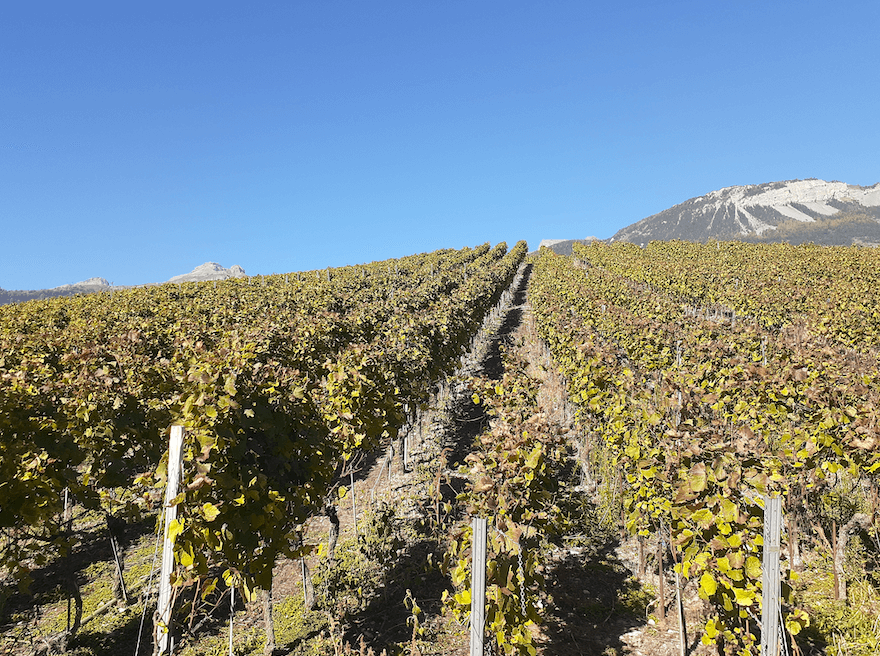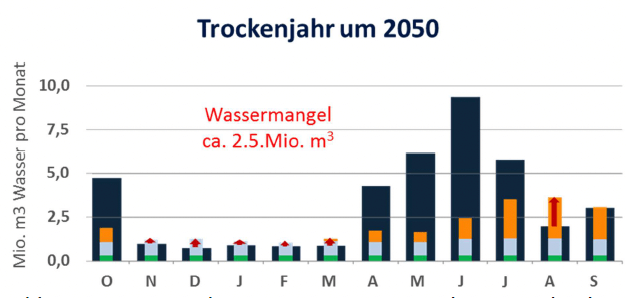The region of Valais is quintessential Switzerland: snow-capped peaks, rolling vineyards, linguistic diversity. It seems as far away from water stress as could be imagined. But recent years are showing that even this “Chateau d’Eau” is not immune to the stresses of a changing climate as temperatures and glacial melt become more unpredictable.
There’s a long proud tradition of irrigation innovation in Switzerland – fitting for a country voted the world’s top innovative country for the eleventh consecutive year. In Valais in particular, this innovation goes way back and is typified by the invention of bisses in the 15th century – gravity-defying irrigation channels to irrigate the mountainous region. “It was a question of survival for Valais agriculture,” local farmer Lydwine Bruchez told a recent BBC article. “Water is life, quite simply.”
Now, with climate change gathering pace and having impacts even here, Swiss ingenuity is called for once again to combat dwindling water supplies.
A good example for this is the area around the commune of Salgesch, where there is already an acute shortage of water from July to September – precisely when it is most urgently required for irrigation. This poses a significant economic threat in a region reliant on agriculture, viticulture and the associated tourism.
This worsening issue has led to action taking place at various levels, from local to communal, from public to private. “It’s weird to hear it, as we’re in the middle of the alps,” stated Stephane Revey, Vice-Mayor of Salgesch. “But there is a lack of water supply, especially for irrigation, so we are looking at innovative technologies.”
Technological solutions
The search for sustainable and lasting solutions has gathered pace in recent years, and looks to have reached a crucial tipping point in 2021. Indeed, a revolutionary project between engineering firm Cordonier & Rey SA and the Municipality of Salgesch has received backing and will be implemented in 2022 and beyond. “The solution is simple: it’s about storage, to access water at the right time,” explains project leader Yves Rey. Then it’s about maximizing the use of the available water, including Precision Irrigation solutions in collaboration with fellow Valais-based firm AQUA4D®.
Although known primarily for implementing game-changing irrigation solutions around the world from California to Uzbekistan, there is now a call for implementation much closer to home.
Integrated water management
As project leader Yves Rey explains, this large-scale project involves solutions along two axes: Firstly, the availability of water through the Lienne-Raspille project storing water at the Tseuzier dam (see photo to the right). Secondly, water conservation through innovative irrigation.
The implementation of drip irrigation and AQUA4D® can enable water savings of 40% here. With irrigation demand for the year 2050 estimated at 10.5 million m3, this means 4.2 million m3 of water a year may be saved.
Having received local, communal and national backing, the project was given a further boost after winning the inaugural #PrixAlpiq. “This irrigation project will have a lasting impact on water management in the municipality of Salgesch,” write Alpiq. “It will encourage other municipalities to collaborate in order to implement together solutions to face climate change.”
From Valais to the world
It’s no understatement that what happens in this small commune may have knock-on effects around the country and even around the world. Successful implementation in this region may lead the way for other Swiss regions. And in many ways Salgesch is a microcosm for similarly water-stressed regions. For example, conditions in Valais are resemble those in regions including California’s Central Valley, whose famous almond growers rely on snow pack melt from the Sierra Nevada.
No surprise, then, that water management experts are keenly watching developments in Valais: the innovative solutions being rolled out here just might hold the key to addressing water scarcity on a global level◾






